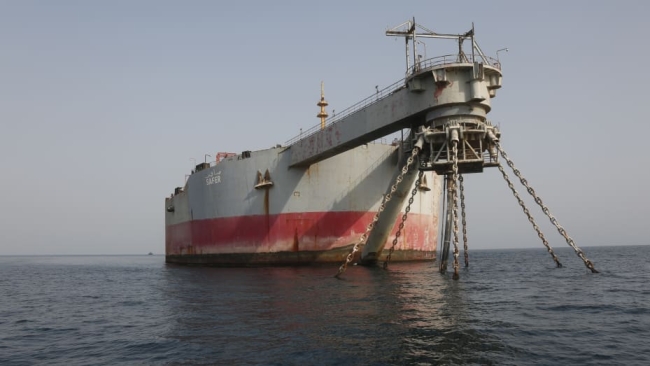UN Begins Transfer of Oil to Prevent Catastrophic Leak in Yemen
The United Nations (UN) has taken action to prevent a major oil leak off the coast of war-torn Yemen. They have started transferring over 2 million barrels of crude oil from a decaying tanker to a replacement vessel.
Preparation and Progress
The UN has been preparing for this salvage operation for years, and it is considered a significant milestone. Achim Steiner, the head of the UN Development Program, announced that pipes have been laid between the FSO Safer oil tanker and the replacement tanker, and the first gallons of oil have been pumped off.
Importance of the Operation
UN Secretary-General Antonio Guterres emphasized the urgency of the situation, calling it a "ticking time bomb." He expressed the need to prevent what could be the worst oil spill in our history.
About the FSO Safer Oil Tanker
The FSO Safer oil tanker is a floating storage and offloading unit located 60 kilometres (37 miles) north of the port of Hudaydah. It is used for storing and exporting oil from the oil-rich central province of Marib. Currently, under the control of Houthi rebels, the tanker has not undergone maintenance since 2015, and over 1 million barrels of crude oil have been sitting in the decaying vessel in the Red Sea.
Duration and Funding of the Operation
The UN Humanitarian Coordinator for Yemen, David Gressly, stated that the operation is expected to take 19 days. The UN has raised $121 million for the operation, including funds borrowed from the humanitarian budget. However, an additional $22 million is still needed.
Challenges and Future Plans
Achim Steiner mentioned that discussions have taken place with the Houthis and the Yemeni government regarding the eventual sale of the oil. However, due to a lack of trust between the parties in the complex Yemeni setting, progress has been challenging.
Potential Consequences and Cleanup Costs
If a major oil spill were to occur, it would have devastating effects on fishing communities along Yemen's Red Sea coast. The UNDP estimates that around 200,000 livelihoods would be instantly wiped out. Additionally, the cost of cleaning up an oil spill is estimated to be around $20 billion.


